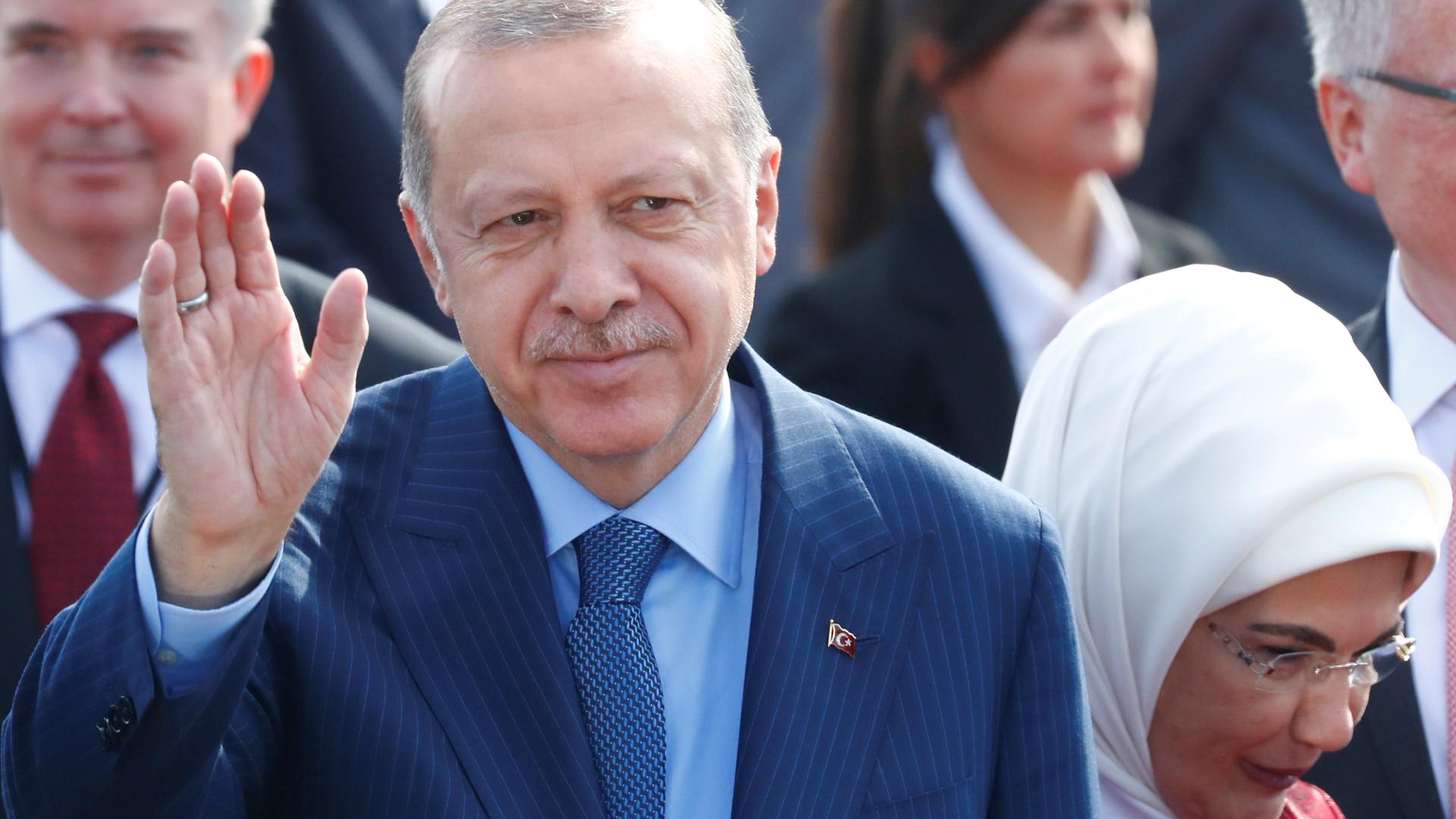Turkey’s President Recep Tayyip Erdogan arrived in Berlin on Thursday for his first “state visit” to Germany as president.
Senior German officials welcomed the president and the first lady Emine Erdogan at the military section of Berlin’s Tegel Airport.
Turkish president is accompanied by key ministers during the visit, including economy, finance, trade and industry ministers.
German news channels broadcast the welcoming ceremony live at the airport, where Erdogan was welcomed by an honour guard, and 21 gun salute.
On Friday, Erdogan will meet his German counterpart Frank-Walter Steinmeier and will hold talks with Chancellor Angela Merkel.
Merkel will host a lunch for Erdogan at the Chancellory, and the two leaders will meet again on Saturday morning for a working breakfast to discuss bilateral and international issues.
TRT World’s Andrew Hopkins, who is in Berlin, explains what to expect from the high-profile visit.
Fresh page in bilateral relations
Ahead of his official talks in Berlin, Erdogan called for opening a fresh page in Turkish-German relations amid an era of new global challenges.
“The dramatic developments in the world make it indispensable for both Germany and Turkey to open a new page in bilateral relations, to leave aside their differences and focus on their common interests,” Erdogan wrote in an article published on Wednesday in Frankfurter Allgemeine Zeitung.
TRT World’s Andrew Hopkins takes a look at the differences both sides have agreed to sort out.
Erdogan said both countries face similar challenges and threats such as terrorism, irregular refugee movements and trade wars.
“We are obliged to enhance our relations based on our mutual interests, in a reasonable way,” Erdogan wrote.
“Let us concentrate on our common interests, the common challenges and threats we face. With respect to our disagreements, we should keep all dialogue channels open, continue our exchanges, and by showing maximum empathy, we should try to understand our mutual sensitivities,” he added.
Expectation from Germany
President Erdogan also renewed his call on German authorities to show more solidarity with Turkey in its fight against outlawed and terrorist groups.
“We expect Germany to extend its support to Turkey in its fight against terrorist groups such as FETO, PKK and DHKP-C, which are also a threat to Germany’s domestic security and target German citizens,” he said.
He also warned against the propaganda activities of PKK and FETO followers in Germany.
“The PKK and FETO members and their organizations are using various instruments, including manipulations and fake news, to sabotage our bilateral relations,” he said.
In its 40-year terror campaign against Turkey, the PKK which is listed as a terrorist organisation by Turkey, the US and the EU has been responsible for the death of some 40,000 people, including women and children.
The Fetullah Gulen Terror Organisation (FETO) and its US-based leader Fetullah Gulen were behind the coup attempt in Turkey on July 15, 2016, which left 251 people dead and nearly 2,200 wounded.
Source of bilateral tensions
Germany’s reluctance to take serious measures against terrorist groups such as the PKK and the FETO has been a source of tension between the two countries in the last two years.
Both terrorist groups use Germany, which is home to more than 3 million migrants from Turkey, as a platform for their propaganda fundraising and recruitment activities.
Relations between Ankara and Berlin have suffered setbacks in past years, but both sides have taken steps in recent months towards improving ties.
EU heavyweight Germany remains Turkey’s main economic and trade partner. In 2017, the bilateral trade volume reached $43.6 billion.










Discussion about this post